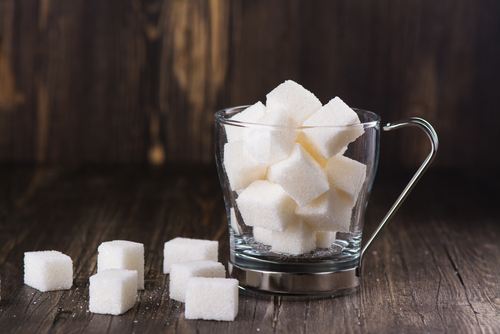If you have type 2 diabetes, you most likely try to watch what you eat as best you can. This means cutting down on processed foods that contain a lot of trans fats and sugar.
You probably also know that a lot of sugar-free foods are made with sugar substitutes, such as stevia. But is stevia really a good option for diabetics? That’s what we’re going to find out in this blog post.
Stevia… What is it Exactly?
Among the common sugar substitutes on the market, stevia is a bit unique in that it is derived from a plant. The stevia plant is part of the Asteraceae family, related to the daisy and ragweed. These plants are commonly found in Paraguay and Brazil, where locals have been using the leaves to sweeten their food for hundreds of years. People in these countries also would chew on the leaves for a sweet treat and use the leaves to treat burns, colic, stomach problems and sometimes even as a contraceptive.
Is Stevia Safe or Not?
Since stevia is used widely in food manufacturing, it’s important to know whether it’s safe or not, particularly for diabetics. And this is where things get a little complicated. According to the Federal Food and Drug Administration (FDA), high-purity steviol glycosides, an extract of the stevia plant, are considered “generally safe” for use in food manufacturing.
On the other hand, the FDA has also stated that stevia leaf and crude stevia extracts are “not generally recognized as safe” (GRAS) and do not have FDA approval for use in food.
Stevia may cause low blood pressure, and this should be a concern to anyone who is currently on hypertension medications. Research has uncovered that there are also naturally occurring chemicals in stevia that may cause genetic mutations and cancer.
Stevia has been shown to sometimes interact with certain medications such as anti-fungals, anti-inflammatories, anti-microbials, anti-cancer drugs, anti-virals, appetite suppressants, calcium channel blockers, cholesterol-lowering drugs, drugs that increase urination, and fertility agents. Some doctors have warned that people on insulin or drugs for diabetes should also be monitored by their doctor when using stevia.
More Conflicting Data
At this point in the blog post you might be thinking, “What gives? Is stevia safe or isn’t it?” Well, let’s look at some more studies to see if we can get a definitive answer to that question.
A 2017 article in the Journal of Medicinal Food states that stevia has the potential to treat endocrine diseases such as obesity and diabetes. But other studies have shown low-calories sweeteners, oddly enough, can lead to overeating and weight gain. A 2004 study published in the International Journal of Obesity and Related Metabolic Disorders found that when rats were fed low-calories sweetener, they ate more and gained weight.
Ready for more conflicting data?
A 2010 study in the journal Appetite found that people did not overeat (like the rats) after consuming a meal made with stevia instead of sugar. Their blood sugar was also found to be lower after the meal made with stevia.
Yet another study published in a 2016 issue of the International Journal of Obesity found that after eating no-calorie sweeteners, such as stevia, test subject’s blood sugar spiked much more than when they ate real sugar.
“A number of studies suggest people who regularly consume ASB [artificially sweetened beverages] are at increased risk compared with those that do not consume ASB,” Dr. Susan E. Swithers said in a 2013 opinion letter in the journal Trends in Endocrinology and Metabolism.
Wrapping it All Up
Let’s close by trying to wrap our collective heads around the information I’ve just presented:
1) Although certain stevia products are considered “generally recognized as safe” by the FDA, they may still cause mild side effects such as nausea. In addition, not all stevia products are approved for consumption and use of non-approved crude stevia and whole-leaf stevia extracts can damage heart, kidneys and lead to potential blood sugar problems.
2) In some studies, stevia has been found to be effective in maintaining stable blood sugars and helping people lose weight.
3) In other studies, stevia has been shown to cause people to eat more, gain weight, and cause their blood sugar to spike.
What are to we conclude with all of this contradicting “evidence?”
It’s Better to NOT Have Type 2 Diabetes
Do you ever wish you could roll the clock back and live life like you did before you were diagnosed with type 2 diabetes? Life was simpler then. Eating was simpler then. Sure, maybe you watched your calories so you could still fit into your clothes, but you basically ate what you want.
Well, what if I told you that you don’t have to have type 2 diabetes anymore? Because you don’t.
You see, for decades now we have all been led to believe that a diagnosis of type 2 diabetes is a life sentence. Once you have it – that’s it. You will forever be dependent on insulin injections and forever not be able to eat the foods you once loved.
That is just plain WRONG!
Type 2 diabetes is a metabolic condition, and it is completely reversible. In fact, right this minute, while you are reading this blog post, there are countless people throwing their medications into the waste basket.
Would you like to join them?
 Validating...
Validating... 





Leave a Reply